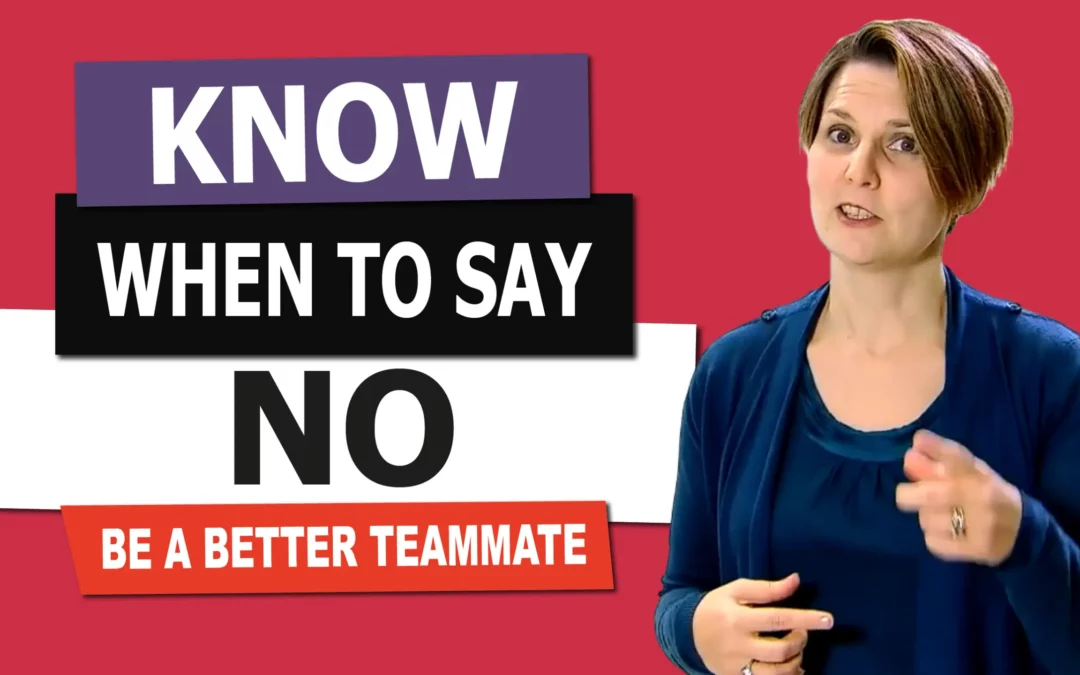Saying no doesn’t make you negative (video transcript)
Your fourth responsibility as a team member is to know when to say no. Saying no is your ticket to focus, to accountability, and to credibility with your teammates. From the time we’re really little, we learned that a good team player says yes, but saying yes, taking on more things, puts so much on your plate that you’re at higher risk of dropping the ball.
When you do that, it erodes your teammate’s confidence in you. And it actually leaves you in a situation where they don’t know if they can count on you or not. Saying yes to the wrong things can have a devastating impact on your team. It can lead to chronically poor execution, lack of confidence in one another, and levels of stress and anxiety that make your whole team a powder keg waiting to blow.
You’ve got to learn when and how to say no.
The first thing to do is question whether the work needs to happen at all. Often we get into a pattern of doing things because we’ve always done them. Well, maybe it’s time to stop. Ask some good questions about whether the work is really important and whether it’s a priority at all.
If the work does need to be done, it’s possible that you’re not the right person to do it. Talk to your teammate about what you have committed to and why those are the right priorities for you. But don’t leave them hanging. Help them find a person who is the right person to get the job done because the work needs to get done one way or another.
People will find it refreshing when you have an authentic conversation with them about what you will and won’t do. It’s really important to take on work when it’s the right thing.
–
But remember, every yes to something new is like a no to the things you’ve already committed to. It’s much better to say no to the things that aren’t your priority. If you change the things you say yes to, you’ll change your team.
Enough is Enough!–Tips and Tools for Saying NO
